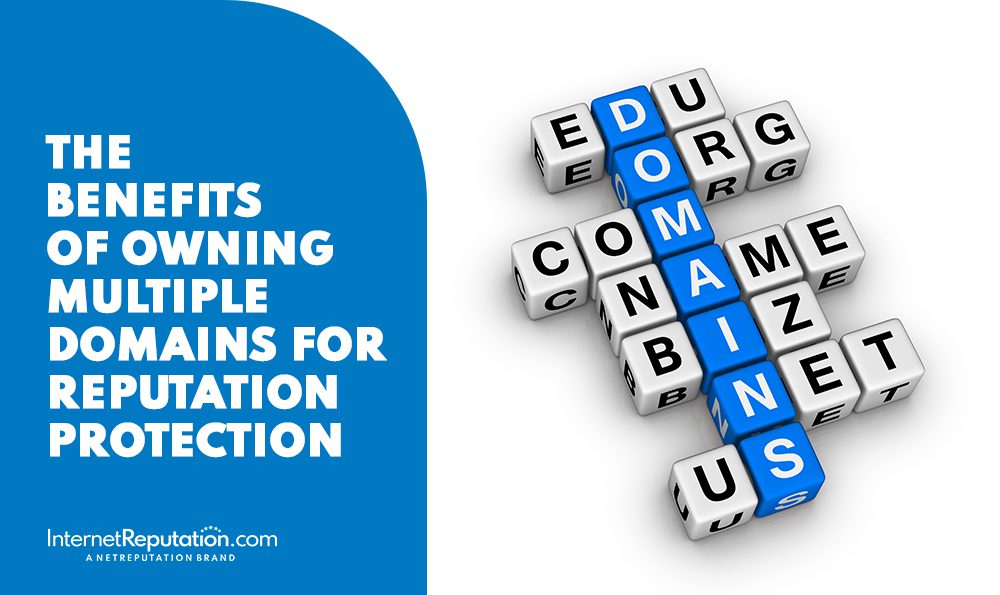How To Manage Your Reputation

In part two of our Reputation Management Series, we show you how to manage your reputation by removing unwanted information from search engine results.
Bad Results: A Powerful Adversary
Imagine: every time you Google your name, a negative result shows up, front and center, and for the whole world to see.
From what we’ve learned, no amount of yelling at the screen or lashing out at Google is going to make it disappear. A complicated search engine ranking process, filled with ever-changing algorithms and site authorities, makes removing unwanted online information nearly impossible.
What few people know is that everyone has the ability to mitigate the negative effects of online search results and learn how to manage their reputation through a few simple steps.
You Aren’t Alone, And You Can Push Back
Unwanted, embarrassing items appear online all the time, leaving damaged reputations in their wake. Even people with the most polished reputations are vulnerable to the impact of negative search results.
This may be an unfortunate consequence of living in the digital age, but it doesn’t mean you’re without options for resolving the issue. Though sometimes difficult and often time-consuming, there are things you can do to repair, strengthen and promote your online reputation, regardless of the site, link or post threatening to tear it down.
This process is commonly known as Online Reputation Management (ORM).
Can I Remove My Information from Google?
The first step in how to manage your reputation is the outright removal of the negative information. The link, as you know, is prominent on Google’s first page, but where does that link lead? And once you know the location, how do you go about getting it removed?
Do You Own the Page?
If the negative information showing up in Google results, links to a page or profile you own, guess what? You most likely have control over the information. If that’s the case, you can take steps to remove, or at the very least, improve the quality of the information.
Examples include your Facebook profile, blog, and sometimes even your professional listing on a review site. If something is negative or inaccurate on an online asset you created, chances are you can alter it for the better. In some cases, you could potentially rid yourself of the problem by deleting the post or your account altogether.
What many don’t know is that deleting an online profile or account doesn’t necessarily eliminate the information altogether. Data is data, and anything posted online is public information. Consider this anytime you post content now and in the future.
Everything Else
In the case you do not own the page with negative information, try contacting the site’s Webmaster to request removal of the unwanted information. If you do so, be as personable and thorough as possible. While there are no guarantees the individual will remove the information, it’s always worth a shot. Site Webmaster’s are more accessible than you think; you never know when or if your request will land upon a sympathetic ear.
When Removal Hits a Roadblock
Information removal is a complicated process, particularly if that undesired item is appearing on multiple sites across the Internet. If your attempts at removal have led you to a digital dead-end, then it’s time to consider suppression.
The idea of suppressing information is, essentially, to bury it. Though you may be unable to remove the item altogether, you can take steps to remove its visibility. You can generate enough positive online content that to push negative information off Google’s first page, rendering it toothless and a nonthreat to your reputation.
Though not easy, if you can fill up that ever-so precious first page of search results with positive assets, you’re heading in the right direction.
Assuming Control of Your Situation
The thoughtful creation and placement of positive online assets can pay off in dividends, not only in terms of suppressing negative information, but also as a way to enhance and promote your best attributes throughout the Web.
Establish Your Domain
Center your online presence by purchasing your own domain name. Registering a domain with your name (or something very close, if that isn’t available) provides an inexpensive opportunity to build out your own website where you can feature and promote positive personal and professional information to anchor your online reputation.
Beef Up Your Social Media IQ
Consider developing a social media presence. Platforms like Facebook, Twitter and LinkedIn rank highly in search engines and are worth their weight in reputation management gold.
By creating profiles using your name on popular social media sites, you can effectively bump positive content about yourself to the top of Google search rankings. An active presence on these sites further strengthens these profiles while solidifying their place in Google’s Golden Triangle.
Blog Often
Creating a blog under your real name provides you with a great venue for content creation. It is also an opportunity to generate links that direct people toward your knowledge, experience and expertise on subject matter you genuinely care about – a valuable tool for those learning how to manage their reputation.
Demonstrate Your Expertise Whenever Possible
What is your area of expertise? No matter your wheelhouse, the act of positively demonstrating your knowledge of or familiarity with an important issue or topic helps strengthen your online credibility, and reflects well on your reputation.
Whether through a blog post, a comment on a news article or even a thorough product review, tying your real name to informative, well-constructed posts on authoritative sites can help thrust your name to the top page of search results.
Network Your Information
Share links to your website, your social media profiles and other posts as often as possible. Whenever you update a blog or SM profile, think about how you can tie it to other assets you own, or that positively reflect on who you are. The natural inclusion of links in new content further solidifies its relevance and justifies a stronger search engine ranking.
Your Voice Is There. Give It A Microphone
Refuse to be the victim. Learn how to manage your reputation and take control of your online footprint.
Believe it or not, the Internet is not an entirely chaotic and uncontrollable environment.
For those with a little savvy and desire to work with the digital tools available, the Internet presents an opportunity to effectively defend and buffer your name from online attack and the potential of negative search engine information appearing online.
Inactivity is your enemy. Proactivity is your ally.
Though not always quick or easy, a little online maintenance can go a long way toward repairing and restoring control over your online reputation.



